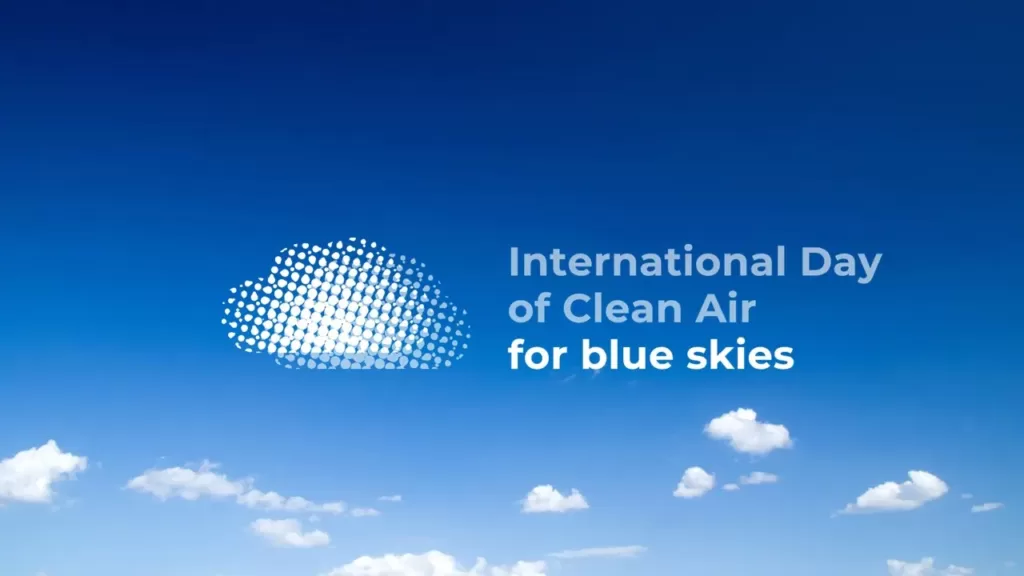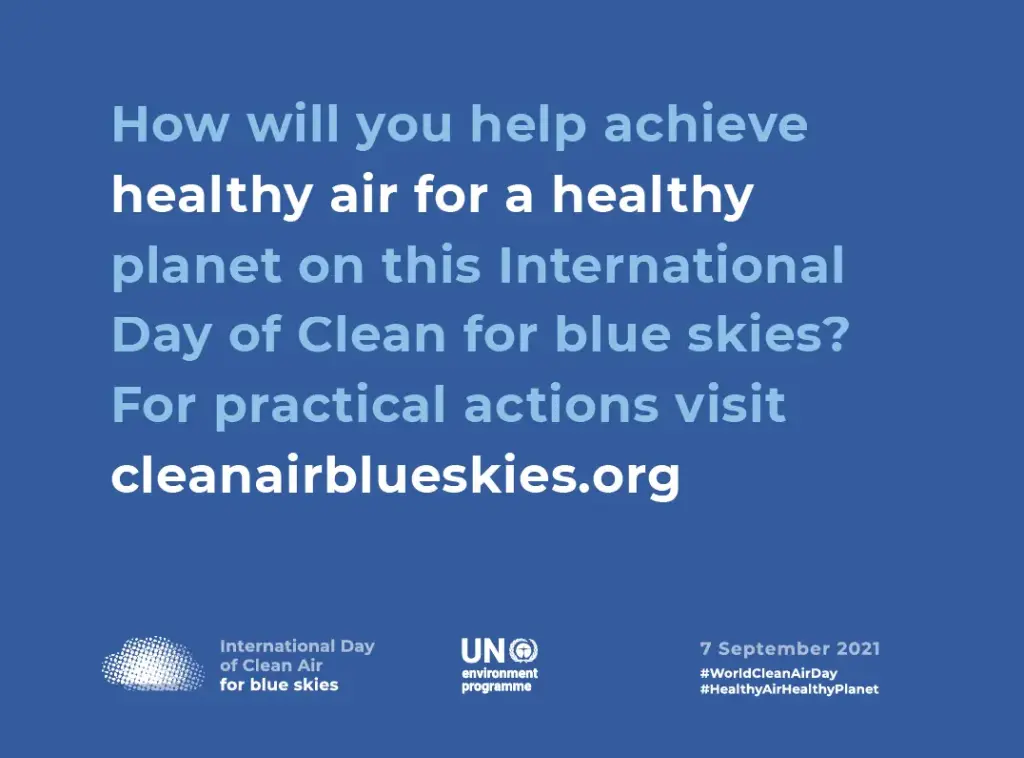 September 7 is World Day of Clean Air. The 2021 theme for the International Day of Clean Air for blue skies is “Healthy Air, Healthy Planet” which emphasizes the health aspects of air pollution, especially considering the COVID-19 pandemic.
September 7 is World Day of Clean Air. The 2021 theme for the International Day of Clean Air for blue skies is “Healthy Air, Healthy Planet” which emphasizes the health aspects of air pollution, especially considering the COVID-19 pandemic.
Healthy Air, Healthy Planet
This year’s focus is on prioritising the need for healthy air for all, while keeping the conversation broad enough to encompass other critical issues such as climate change, human and planetary health as well as the Sustainable Development Goals. The day serves as a rallying call to action to align our efforts and claim our right to clean air.
A two-fold problem
Health impact: tiny, invisible particles of pollution penetrate deep into our lungs, bloodstream and bodies. These pollutants are responsible for about one-third of deaths from stroke, chronic respiratory disease, and lung cancer, as well as one quarter of deaths from heart attack. Ground-level ozone, produced from the interaction of many different pollutants in sunlight, is also a cause of asthma and chronic respiratory illnesses.
Climate impact: short-lived climate pollutants (SLCPs) are among those pollutants most linked with both health effects and near-term warming of the planet. They persist in the atmosphere for as little as a few days or up to a few decades, so reducing them can have an almost immediate health and climate benefits for those living in places where levels fall.
Preventing and reducing air pollution to improve air quality globally
Аir pollution is the single greatest environmental risk to human health and one of the main avoidable causes of death and disease globally, with some estimated 6.5 million premature deaths (2016) across the world attributed to indoor and outdoor air pollution. Particularly in developing countries, air pollution disproportionately affects women, children and the elderly, especially in low-income populations as they are often exposed to high levels of ambient air pollution and indoor air pollution from cooking and heating with wood fuel and kerosene.
Аir pollution is a global problem with far-reaching impacts owing to its transport over long distances. In the absence of aggressive intervention, the number of premature deaths resulting from ambient air pollution is estimated to be on track to increase by more than 50 per cent by 2050.
Society bears a high cost of air pollution due to the negative impacts on the economy, work productivity, healthcare costs and tourism, among others. Hence, the economic benefits of investing in air pollution control cannot be overestimated, and it must be understood that there is also an economic rationale to act and that cost-effective solutions exist to address air pollution.
Poor air quality is a challenge in the context of sustainable development for all countries, in particular in cities and urban areas in developing countries, with levels of air pollution that are higher than the limits set out in the World Health Organisation air quality guidelines.
Some air pollutants, such as black carbon, methane and ground-level ozone, are also short-lived climate pollutants and are responsible for a significant portion of air pollution-related deaths, as well as impacts on crops and hence food security, so their reduction has co-benefits for the climate.

International Day of Clean Air for blue skies
UN Member States recognize the need to substantially reduce the number of deaths and illnesses from hazardous chemicals and air, water and soil pollution and contamination by 2030, as well as to reduce the adverse per capita environmental impact of cities, including by paying special attention to air quality and municipal and other waste management by 2030.
Clean air is important for the health and day-to-day lives of people, while air pollution is the single greatest environmental risk to human health and one of the main avoidable causes of death and disease globally. Air pollution disproportionately affects women, children and older persons, and also has a negative impact on ecosystems.
Today, the international community acknowledges that improving air quality can enhance climate change mitigation and that climate change mitigation efforts can improve air quality.
Encouraged by the increasing interest of the international community in clean air, and emphasizing the need to make further efforts to improve air quality, including reducing air pollution, to protect human health, the General Assembly decided to designate 7 September as the International Day of Clean Air for blue skies.
Clean Air and Sustainable Development Goals
In the outcome document of the United Nations Conference on Sustainable Development, entitled “The future we want,” countries committed to promoting sustainable development policies that support healthy air quality in the context of sustainable cities and human settlements. Also, the 2030 Agenda for Sustainable Development, which outlines a road map to achieving sustainable development, environmental protection and prosperity for all, recognizes that air pollution abatement is important to the attainment of the Sustainable Development Goals.
Source
Image Source
![]()


